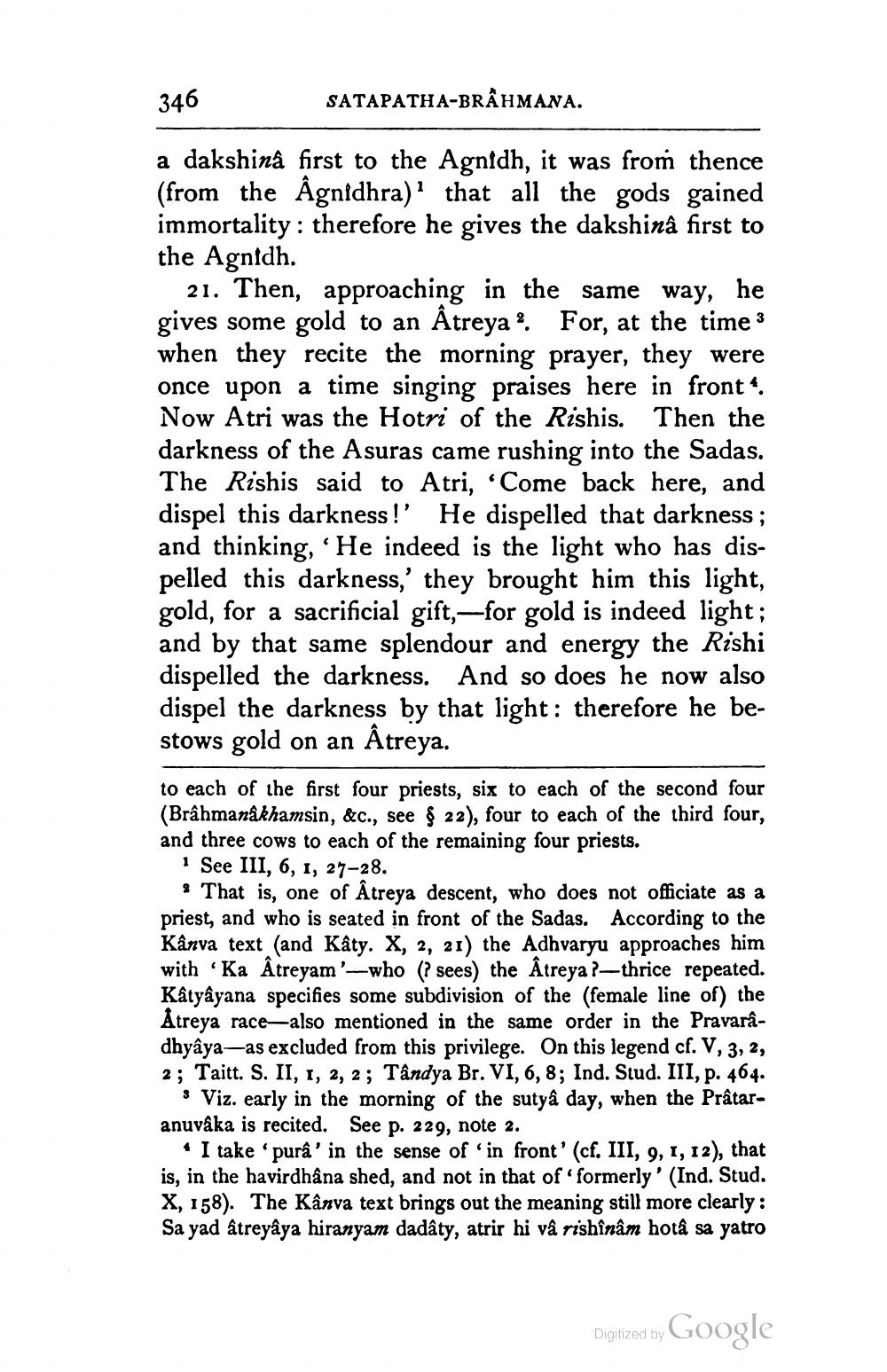________________
346
SATAPATHA-BRAHMANA.
a dakshinâ first to the Agnidh, it was from thence (from the Agnidhra)? that all the gods gained immortality: therefore he gives the dakshinâ first to the Agnidh.
21. Then, approaching in the same way, he gives some gold to an Atreya ? For, at the time 3 when they recite the morning prayer, they were once upon a time singing praises here in front“. Now Atri was the Hotri of the Rishis. Then the darkness of the Asuras came rushing into the Sadas. The Rishis said to Atri, Come back here, and dispel this darkness!' He dispelled that darkness; and thinking, 'He indeed is the light who has dispelled this darkness,' they brought him this light, gold, for a sacrificial gift,-for gold is indeed light; and by that same splendour and energy the Rishi dispelled the darkness. And so does he now also dispel the darkness by that light: therefore he bestows gold on an Atreya.
to each of the first four priests, six to each of the second four (Brâhmanâkhamsin, &c., see § 22), four to each of the third four, and three cows to each of the remaining four priests. 1 See III, 6, 1, 27-28.
That is, one of Atreya descent, who does not officiate as a priest, and who is seated in front of the Sadas. According to the Kânva text (and Kâty. X, 2, 21) the Adhvaryu approaches him with Ka âtreyam'--who (sees) the Âtreya ?-thrice repeated. Kâtyâyana specifies some subdivision of the (female line of the Åtreya race-also mentioned in the same order in the Pravaradhyâya—as excluded from this privilege. On this legend cf. V, 3, 2, 2; Taitt. S. II, 1, 2, 2; Tândya Br. VI, 6, 8; Ind. Stud. III, p. 464.
Viz. early in the morning of the sutyâ day, when the Prâtaranuvâka is recited. See p. 229, note 2.
I take 'pura' in the sense of in front' (cf. III, 9, 1, 12), that is, in the havirdhana shed, and not in that of formerly' (Ind. Stud. X, 158). The Kânva text brings out the meaning still more clearly: Sa yad atreyâya hiranyam dadâty, atrir hi vâ rishînâm hotâ sa yatro
Digitized by Google




